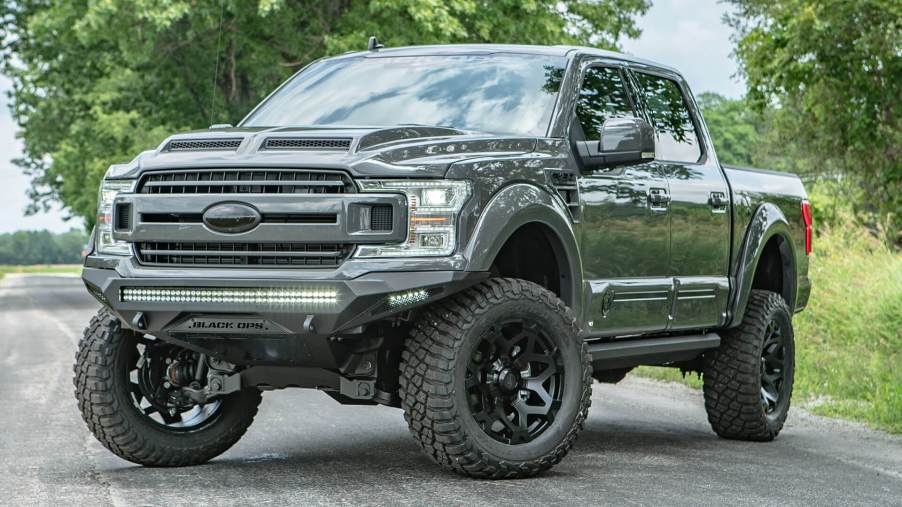
How High Can You Legally Lift Your Truck?
When it comes to riding high, you may want the freedom to enjoy your lifted truck. But you don’t want to get pulled over because your truck lift is too tall. There are certain laws and regulations to abide by. See how high you can legally lift your pickup truck.
How tall can you legally lift a truck?

There are varying laws based on how high you can lift a truck depending on which state you live in. Be sure to comply with the individual guidelines and regulations set by your state with your lifted truck.
Also, be sure to stay up to date with changing laws. Sometimes regulations change, and it’s your responsibility to make sure your truck lift kit isn’t illegal. For example, North Carolina recently banned squatted trucks due to the danger caused by the modifications.
Most of the rules are set in place to keep you and fellow motorists around your vehicle safe. When it comes to frame height, most states measure the distance between the middle of your headlights and the pavement.
Each state with regulations is a little different. For example, in Arizona, truck lifts are allowed with the use of mud flaps and fenders. There are no suspension lift, frame height, or body lift laws put in place.
But in California, frame height and body lifts can’t exceed an additional five inches. Aftermarket parts are allowed. In Connecticut, suspension lift kits can’t be taller than four inches, and a fender is required for each wheel.
Florida is a bit more intricate. The laws are based on the vehicle’s gross vehicle weight rating (GVWR). Vehicles under 2,000 lbs have a maximum front bumper height of 24 inches, and the rear bumper height is limited to 26 inches. Vehicles over 5,000 lbs are exempt.
Many states like Texas, South Carolina, North Carolina, Wyoming, Oregon, and Oklahoma have no suspension lift laws put in place.
You can read more about individual state laws here.
What are the benefits of lifting your truck?
There are multiple benefits for lifted trucks, including a higher ground clearance for off-roading. It provides peace of mind as you climb over sharp rocks and other obstacles without fear of damaging your undercarriage. It can also reduce the risk of getting stuck.
Plus, lifting a truck can provide a better ride quality. You can drive over curbs, massive potholes, tracks, and other irregularities instead of having to maneuver around them.
Riding higher improves visibility as well. This means you get a better view while towing your trailer or hauling loads. Lifting a truck can increase your towing capacity, too. Also, you get a better view of obstacles in the road or while off-roading.
A truck lift provides easier access to the undercarriage for repairs and allows you to equip larger tires to prevent getting stuck while improving your truck’s overall performance.
What are the disadvantages of lifted trucks?

The disadvantages of lifting your truck include potentially voiding your warranty. Be sure to read the fine print that comes with your truck. You may want to consider a factory lift instead of aftermarket options.
Also, truck lifts may lead to a higher center of gravity, which can increase your rollover risk. The heavier weight of the truck due to the suspension kit and larger tires may make it harder to stop.
Lifting your truck may create additional expenses as well because you might need to pair your lift with larger tires, and lifted trucks have a lower fuel economy.
Plus, lifting a truck can change the vehicle’s sight lines. It may reduce visibility in traffic and increase the size of your blind spots. Taller trucks might be harder to park.
Lift kits can also impact the ride quality by making the suspension stiffer. You may notice more vibrating in your truck cabin and a bumpier performance. Plus, they can be significantly more difficult to climb up into and may require additional steps or enhanced running boards for ease of entry. At 5’1″ it’s hard for me to imagine wanting to live with this aspect of a lifted truck.
Stay tuned as we dive into different types of lift kits. What questions do you have about lifting a truck? We’re here to help!





